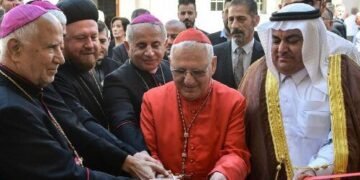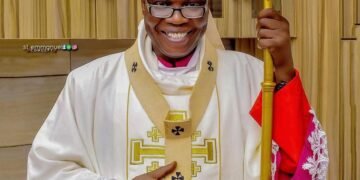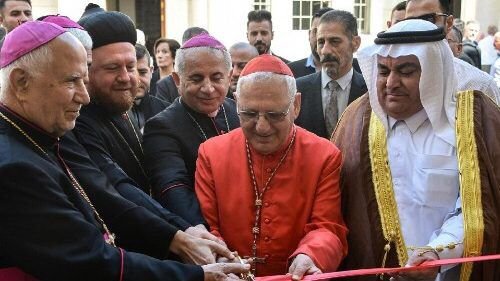By Charles Igwe
Cardinal Louis Raphaël Sako, Patriarch of the Chaldean Catholic Church, has made a passionate appeal for unity among the four Churches with roots in the ancient Church of the East: the Chaldean Church, the Assyrian Church, the Ancient Church, and the Assyrian Evangelical Protestant Church. This call, issued in a statement from the Chaldean Patriarchate and reported by the Vatican’s Fides News Agency, reflects the Cardinal’s conviction that unity is not merely a desirable goal but an urgent necessity, the only viable path through the crises that continue to afflict these Christian communities.
Reflecting on centuries of division, Cardinal Sako likened the fragmented Churches to passengers navigating different waves but traveling together in the same boat. He underscored that unity is not about a nostalgic return to what once was but about envisioning a future where wounds are healed, and the will of Christ is fulfilled. Pointing to the enduring shared creed—“I believe in One, Holy, Catholic, and Apostolic Church”—he emphasized that, despite differences, the essence of the Church remains intact. However, he warned that schisms contradict Christ’s will and have caused profound harm, fragmenting the Church into entities that often struggle to face modern challenges effectively.
Unity, as Cardinal Sako envisions it, requires a forward-looking perspective. It demands practical solutions and a spirit of reconciliation. His call invites these Churches to reflect on their shared faith and historical divisions, not with a sense of blame but with openness and humility. This, he believes, is essential for fostering genuine communion.
A key aspect of this vision is the need to distinguish between doctrinal and administrative issues. Cardinal Sako stressed that matters of faith and morality must remain distinct from questions of Church governance, ensuring that theological unity is not hindered by administrative differences. He also proposed practical steps toward reconciliation, such as the shared use of Church buildings and worship spaces, enabling all faithful to participate in sacraments recognized by the Catholic Church. This approach not only promotes inclusivity but also serves as a tangible expression of the unity that these Churches aspire to achieve.
Cardinal Sako also highlighted the role of the laity in this journey toward unity, urging them to rise above ethnic and nationalistic divisions. He called for a broader Christian identity that transcends local affiliations, fostering a community grounded in faith and shared values. This, he argued, is particularly crucial in the context of Iraq, where the Christian population has been in steady decline due to emigration, violence, and social instability. He urged the Churches to work together with evangelical zeal, combating the indifference to faith and secularism that threaten the vibrancy of their communities.
In his vision, unity is not just an ecclesiastical ideal but a practical necessity for addressing the pressing challenges of the modern era. The fragmentation of the Church of the East has left these communities vulnerable, unable to fully address the spiritual, social, and cultural needs of their faithful. By fostering unity, Cardinal Sako sees an opportunity to create a stronger, more energetic Church—one that can offer hope and resilience in the face of adversity.












































